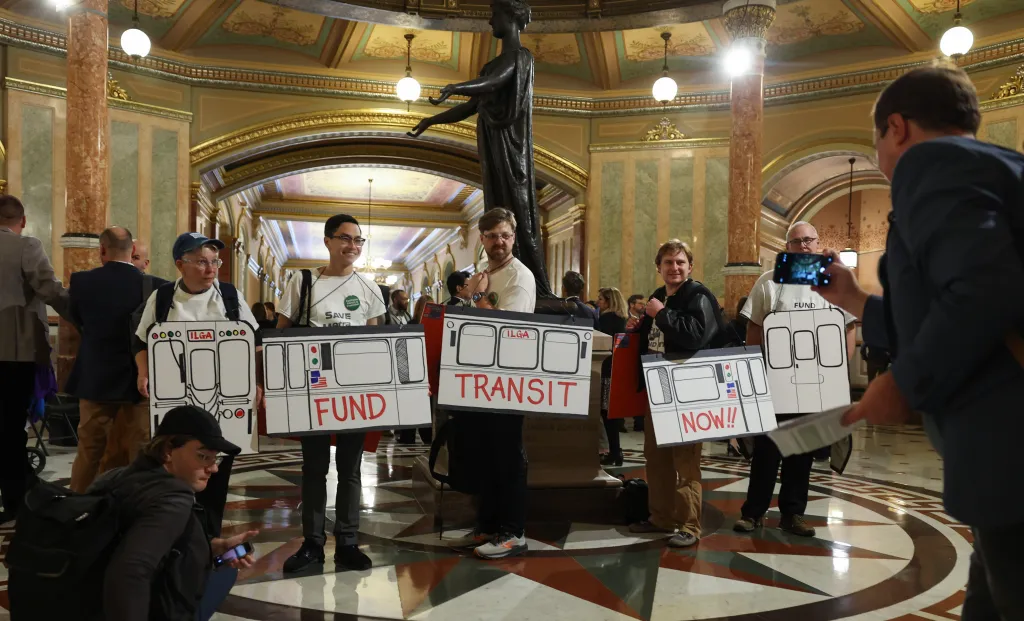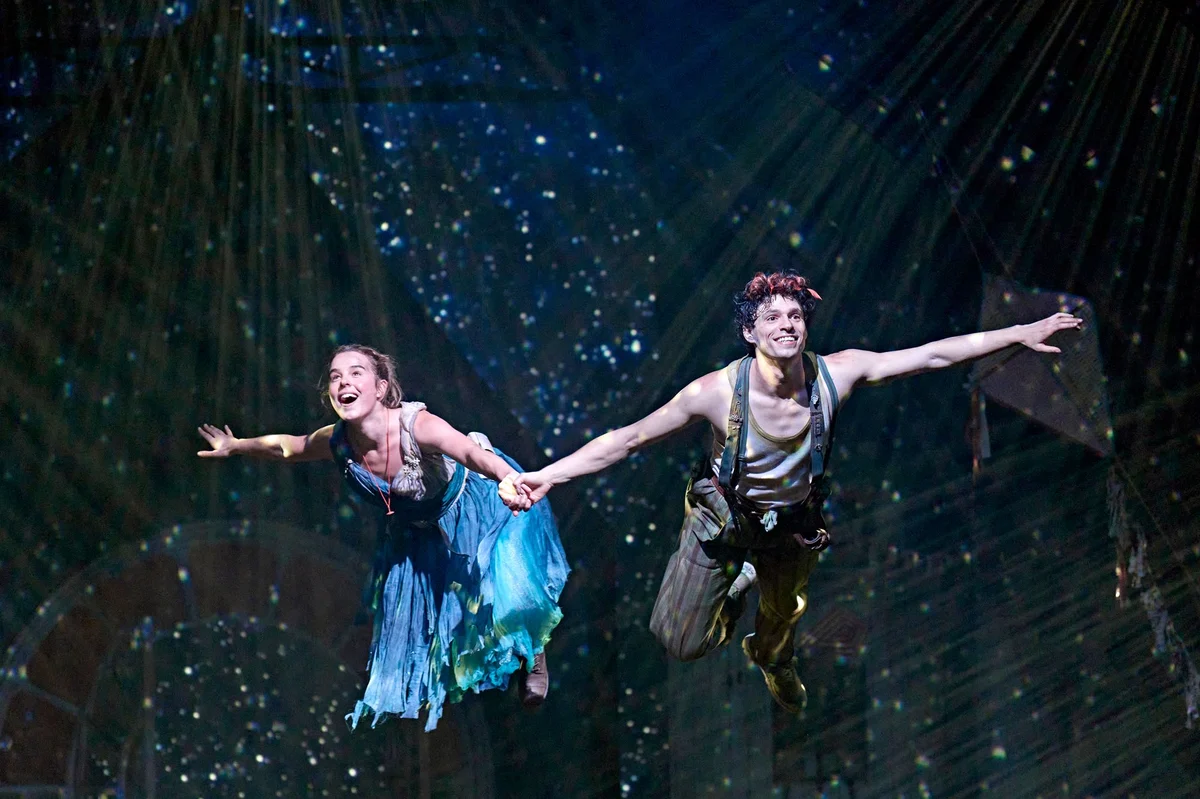Copyright Chicago Tribune

Riders on Chicago Transit Authority trains and buses can breathe a sigh of relief this weekend, and so can travelers on Metra trains and Pace buses. So can Chicago’s tourist and entertainment industry. And a couple of dozen friendly billionaires. With the adult guidance of Gov. JB Pritzker and his staff, state lawmakers scrambled in the wee hours of Halloween morning to approve a mass transit funding solution to looming financial shortfalls that leaned mainly on revenues from existing transportation-related funding sources. Thankfully, the governor killed a mind-bogglingly awful set of tax hikes put forth by House Democrats earlier in the week. We laid out the many reasons that proposal — led by an industry-decimating 7% tax on various forms of entertainment and a first-in-the-nation tax on paper gains of billionaires — was ill thought out and destructive. We were pleased to see more reasonable Springfield voices prevail thereafter. Team Pritzker got directly involved too late in the process, given what the House Democrats came up with on their own, but we ended up with a solution that earmarked $860 million generated by the state gas tax and another $200 million from interest on that road fund for transit — a total of $1.1 billion. The trade-off for trade unions that would have objected to snatching road-improvement money for trains and buses is a toll hike that will generate $10 billion for road projects over a decade. Fair enough. A modest disincentive to drive makes good sense for the Chicago region. We can live with that. Questions swirled around just how much Chicago-area transit agencies needed to forestall service cuts due to the loss of federal pandemic-era support, particularly after the Regional Transportation Authority reduced its projection of the immediate falloff to a little over $200 million from a previous estimate some $500 million higher. But we accept that a fiscal need of some magnitude existed and needed to be addressed. The Chicago area can’t thrive without a well-functioning public-transit system, and the lack of one in Chicago since COVID upended work life as we knew it has been sorely felt. More revenue was necessary, even if questions remain about whether downstate needs are being shortchanged in favor of northern Illinois. But this deal further handicaps Chicago’s desperate need to jump-start economic growth, choked off in no small part by continual threats of new taxes by Democratic leaders at the state and municipal level. Enough has to be enough. To achieve the RTA’s request for $1.5 billion in additional revenue, the agency is expected to approve a 0.25% increase in the Chicago area’s sales tax, which would raise that levy in the city itself to an embarrassingly high 10.5%. A Pritzker spokesman tells us the RTA needed state authorization to hike its part of the sales tax, and the expectation is the RTA board will approve that increase next summer. Roughly $400 million of the $1.5 billion in transit funding will come from the sales-tax increase, a revenue source to which Pritzker rightly has objected for plugging past state budget deficits. We see no need for that sales-tax increase, especially since the deal apparently also is intended to prevent near-term fare increases. The CTA, for example, had not raised fares in nine years, and its $2.50 train fare is too low given the dire circumstances. (By comparison, subway rides are $2.90 in Philadelphia and, as of January, $3 in New York, with San Francisco and Washington, D.C.’s systems charging multiples of those amounts.) The people who actually use the CTA and Metra should have some skin in the game, rather than making everyone pay through a sales-tax increase on top of the tolls and gas taxes. Three dollars a ride to help restore a deficit-hobbled public transportation system feels reasonable to us, especially given the far higher cost of ride-shares, likely to increase even further as the city zeroes in on Uber and Lyft with new taxes. Add in a modest fare increase and the RTA could ask for 0.125% instead of 0.25%. Or just say, “Thanks very much, taxpayers,” and not ask at all for more sales tax. We won’t hold our breath. But it would be doing this city a favor. The fiscal cliff, which has been a moving target anyway over the past year, now stands at an estimated $230 million next year, increasing gradually to $937 million in 2028, according to the RTA. So why did the RTA insist it needed hundreds of millions more than that? Where are the efficiencies that an agency in such a crisis ordinarily would proffer? Team Pritzker also notes that $200 million of the $1.5 billion is earmarked for capital improvements in northern Illinois and downstate — improvements like rebuilding old train tracks that currently are slowing rides on certain elevated lines. Good. But here, too, there are questions: The CTA, which issues bonds, ought to be able to fund smaller-scale capital projects on its own. Part of the reason it’s struggling to do so, as we said last month, is that the wildly overbudget Red Line Extension will likely consume virtually all of the agency’s debt financing bandwidth over the next several years. So, effectively, Chicagoans soon will have to pay a 10.5% tax on their purchases because Springfield refuses to force the region’s transit agencies to prioritize. Passage of this massive rescue package better mean that public safety and general hygiene are dramatically improved on the CTA, particularly the “L.” And in short order. There will be no more excuses. There are provisions in the measure to pay for sworn officers on transit and create other strategies to help make our train and bus rides the comfortable, drama-free experiences they must be. In addition to posing a safety threat to residents, the current state of some “L” lines is an embarrassment to the city when experienced by tourists and other visitors, as we have heard directly. We’re happy that substantial service cuts have been staved off. But we worry that we won’t see the service and management improvements that a whopping $1.5 billion ought to be buying for Chicagoland taxpayers. If not, last week’s all-nighter can’t be Springfield’s last words on this subject.



